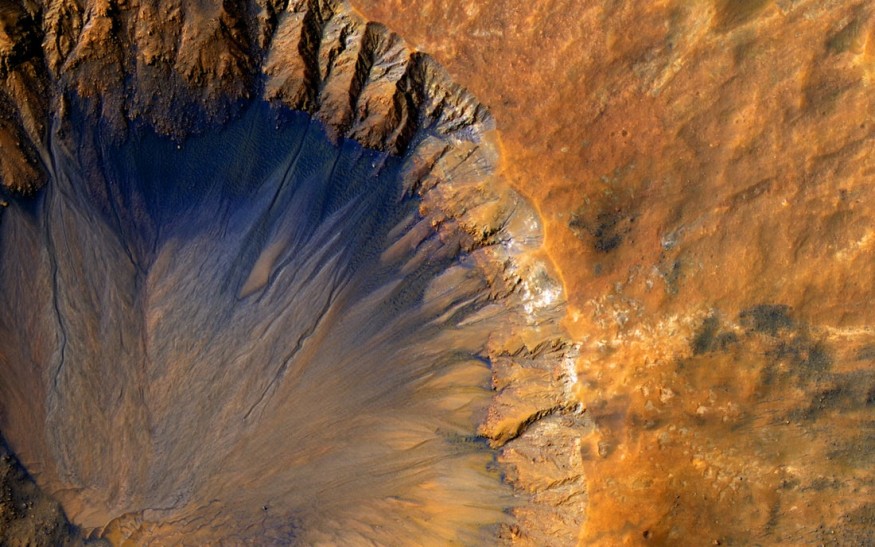If all goes according to schedule, China's Zhurong Mars rover should have landed on Mars today (May 14) at 7:11 p.m. EDT (2311 GMT). China's space agency has not given any updates on the Tianwen-1 lander and rover's status, including confirmation that they separated from the orbiter to begin the landing process, but said this morning that the landing may happen late as May 15. (Beijing time).
China on Saturday landed its #Mars probe, Tianwen-1, on the red planet, ushering in a new chapter of China's deep space exploration and marking another contribution to humanity's exploration of the universe https://t.co/rsc94CsYUZ pic.twitter.com/SPmT1IvuQz
— China Xinhua News (@XHNews) May 15, 2021
Tianwen-1
Tianwen-1 (which means "Heavenly Questions"), China's first Mars landing flight, is set to land on the planet's surface as early as tonight (May 14) at 7:11 p.m. Ye Peijian, chief advisor of Interplanetary Exploration for the China Academy of Space Technology (CAST), announced the news at a conference on Thursday at 11 a.m. EDT (1111 a.m. GMT) (May 13). In a statement this morning, China's space agency said that the rover has a landing window that runs until May 19. The Tianwen-1 is made up of an orbiter, a lander, and a golf-cart-sized rover called Zhurong, which is named after a Chinese fire deity. The mission was launched on a Long March 5 rocket in July 2020 and has been orbiting Mars since February 10. The lander will experience "seven minutes of horror" as it plunges into the Red Planet's atmosphere for a parachute-assisted landing with Zhurong on board. It will attempt to land in Mars' Utopia Planitia field, which is where NASA's Viking 2 mission landed in 1976.
Broadcast
Chinese space officials have not stated whether they plan to broadcast the landing live, and only a few specifics about the landing process have been published. Owing to the time it takes for communications to fly between the two worlds, it will take about 17 minutes for mission controllers on Earth to receive a confirmation signal from Tianwen-1 after the landing. Related Article: Breathable Oxygen Extracted by NASA Out of Mars' Thin Air
Chinese Mars Mission
Although Tianwen-1 will be China's first Mars flight, it will not be the first time the country has attempted to send a spacecraft to the Red Planet. The Yinghuo-1 orbiter, which launched in 2011 with Russia's Phobos-Grunt Mars sample-return mission, was the country's first Mars mission. However, when en route to Mars, Phobos-Grunt became stranded in Earth's orbit, and the trip ended with a collision into the Pacific Ocean.
2nd Country to Land on the Red Planet

The Tianwen-1 landing, if successful, would make China the second country after NASA to land a rover on Mars (which has launched five Red Planet rovers, the most recent of which is Perseverance). Following NASA, the Soviet Union, the European Space Agency (ESA), India, and the United Arab Emirates, China became the sixth organization to successfully send a spacecraft to Mars orbit with Tianwen-1. However, only NASA and the Soviet Union have succeeded in landing there so far; two ESA attempts resulted in crash landings. The only Soviet spacecraft that arrived successfully crashed a few minutes later. If Tianwen-1 survives the plunge, the Zhurong rover will drive down a ramp to escape the safe landing capsule, after which it will drive around and observe the structure and water-ice distribution of the Martian soil for at least 90 Mars days (or approximately 93 Earth days).
Orbiter
China's probe lands on #Mars! The spacecraft entered the Mars orbit in February after a journey of nearly seven months through space, and spent more than two months surveying potential landing sites. Click for more details: https://t.co/IBUh1fgPi2 pic.twitter.com/LOp9lFMRER
— China Xinhua News (@XHNews) May 15, 2021
In the meantime, the mission's orbiter would act as a communications relay between the rover and Earth while still conducting experimental tests from above. The orbiter is expected to last at least one year on Mars, or 687 Earth days (a day on Mars lasts about 40 minutes longer than a day on Earth).
Read also: Potential Faster-Than-Light-Space Travel Facts: Alcubierre's Warp, the Key To Interstellar Travels?
For more Space news, don't forget to follow Nature World News!
© 2025 NatureWorldNews.com All rights reserved. Do not reproduce without permission.





